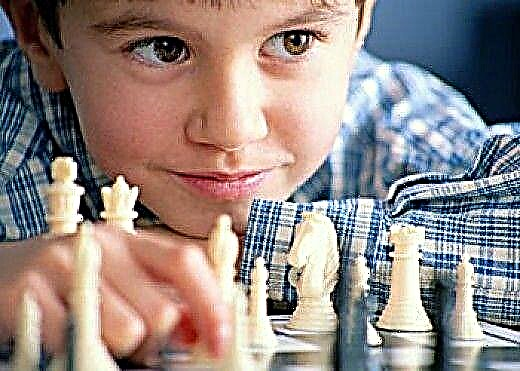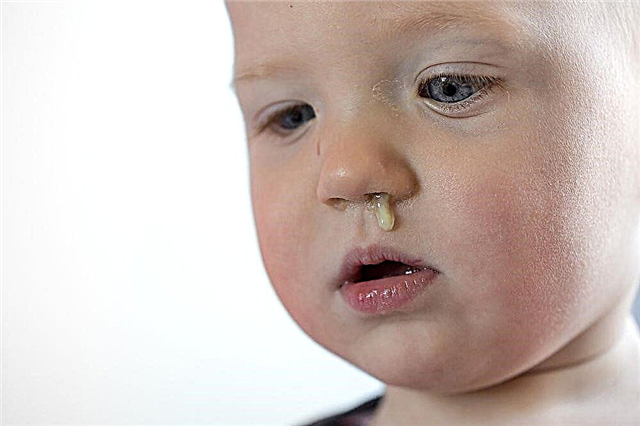Every child inherits the genetic and physical characteristics of their parents. Depending on whose genes are stronger, the baby will look like. Even the biological characteristics of the blood that will flow through the veins of the baby directly depend on the indicators of mom and dad.

Baby waiting
What is blood type
A human blood group is a genetically determined characteristic of biological traits. Medicine wondered how to study the distinctive features of blood cells and antigens when faced with the problem of transfusion - donor material, as it turned out, is not always suitable for the patient.
What groups exist
As a result of a detailed study of blood plasma, 4 types of antigen content were identified. There are only two types of antigens in the blood of different people, conventionally named A and B. Their content is possible in four variations:
- antigens are completely absent, this composition was called the first group (I);
- blood contains only antigens A - the second group (II);
- contains only B antigens - attributed to the third group (III);
- blood containing both antigens belongs to the fourth group (IV).
Statistical data collected in Europe showed that the most common group is the second (II), it belongs to 44% of the population. The first (I) group is slightly less common - in 39% of the population of Europe. The third group (III) was identified in 12% of people, and the fourth (IV) - only in 5%. Since 1928, the letter international classification of blood groups was adopted, replacing the existing one: O (I), A (II), B (III), AB (IV).

Blood transfusion
Interesting. Various studies have identified more than 700 antigens, variations in the content of which can also be grouped. Taking into account all the blood composition classification systems, more than 11,000,000 blood groups can be distinguished. Medicine has proven that it is impossible to find absolutely identical blood composition in two people, except for identical twins.
What does the blood type depend on?
To assume which blood type a child will have, you need to have an idea of how inheritance is formed. During the fusion of the maternal and paternal cells, the struggle of genes for primacy begins. Strong genes with dominant traits suppress weak - recessive ones. Depending on whose genes were stronger, the distinctive features of the fetus are formed.
Mendel's law
Gregor Mendel is a geneticist who became the first who was able to establish the dependence of inherited information on that which parents have. With regard to the inheritance of a blood group, the law of codominance was discovered. According to the law and biological research, the gene that determines a person's blood group can carry information with three values: 0, A and B. Of these, A and B are dominant, that is, they suppress the recessive trait "0". Thus, a person can inherit them in this form:
- 00 - first group;
- AA and A0 - the second group;
- BB and B0 are the third group;
- AB is the fourth, here two dominant features, without suppressing each other, determine the feature.
Parental inheritance
The parents' genetic information is passed on to the unborn child. This applies to hair color, height, blood type. However, blood type, like eye color, is not as straightforward as hair color.
Influence of parents
It is difficult to predict the blood type of a child who should be born to a couple, just knowing their values. The calculation can be carried out taking into account all possible options, each of which will have its own probability. It should be noted that a blood group with only antigen A contains antibodies to antigen B in the plasma.When the blood contains only antigen B, the plasma will contain antibodies to antigen A.

Unchanging property - blood type
Interesting. It can be argued with 100% probability that if both parents are carriers of the first blood group, then the baby will also be born with the first group.
Possible variations
The birth of a child is a significant event for a married couple. Impatient mothers-to-be want to know everything about how the baby will be. Most are puzzled by the child's appearance: who he will look like, what color his eyes will be. The most compassionate people are fond of inheritance calculators, with the help of which they try to determine absolutely all the indicators of a future baby.
Table
Taking into account all possible options, it is possible to calculate what the child's blood type from the parents will be - the table contains values for all possible combinations.
Inheritance and probability
| Father/ mother | I | II | III | IV |
|---|---|---|---|---|
| I | I (100%) | I or II (50% / 50%) | I or III (50% / 50%) | II or III (50% / 50%) |
| II | I or II (50% / 50%) | I or II (25% / 75%) | I, II, III, or IV with equal probability | II, III, IV (50% / 25% / 25%) |
| III | I or III (50% / 50%) | I, II, III or IV with equal probability | I or III (25% / 75%) | II, III, IV (25% / 50% / 25%) |
| IV | II or III (50% / 50%) | II III IV (50% / 25% / 25%) | II, III, IV (25% / 50% / 25%) | II, III, IV (25% / 25% / 50%) |
Additional Information. Based on the data given in the table, it can be argued that a couple in which at least one of the spouses has the fourth group, the child cannot have the first.
What is Rh factor
In addition to antigens that determine one of the four blood groups, there are others. The Rh factor (Rh) is more important for the branch of medicine dealing with transfusion and mixing of blood from different groups than ABO antigens. In the Rhesus system, 5 main antigens are distinguished: D, C, c, E, e. The most immunogenic of the five presented is antigen D. Its presence or absence on erythrocytes determines the Rh-belonging of human blood: if antigen D is present, the blood has a positive Rh factor (Rh +), otherwise it is negative (Rh-).
How is it transmitted to a child
The parental D antigen is inherited as dominant. But the cell that carries this protein may contain its weak recessive varieties. This means that it is possible to find out with 100% probability the Rh factor of the unborn child only if both parents are carriers of the recessive trait dd, that is, their Rh factor is negative (Rh-). The kid of such a pair will also have Rh-. Like the blood group, the inherited Rh factor does not change throughout life.
Rhesus definition table
The possible transmission options for the Rh factor can be presented in the form of a simple table.
Rh factor inheritance
| Father/ Mother | Rh + | Rh - |
|---|---|---|
| Rh + | +/- | +/- |
| Rh- | +/- | Rh - |
Additional Information. If a blood transfusion is necessary and there is no donor with an identical blood group, preference is given not to the group, but to the Rh factor in order to exclude the Rh conflict.
What is Rh-conflict
Rhesus conflict is a difficult situation for a pregnant woman. If she carries a child with a positive Rh, herself having blood with Rh (-), her body will perceive the fetus as something foreign and will try with all its might to get rid of it. That is why the Rh-conflict is extremely dangerous for the fetus. It can also lead to serious pathologies in the development of internal organs, which, during their formation, worked in an enhanced mode.
Conflict can occur when a woman has Rh (-), and a man is a carrier of homozygous DD cells, that is, a dominant Rh (+). The Rh factor of the fetus in such a couple will be positive.
Important! In antenatal clinics in the early stages of pregnancy, a blood test is taken from each woman, and if necessary, from the father, in order to find out if there is a conflict that threatens the life of the unborn child.
Every woman should know that with her negative Rh it is possible to give birth to healthy children if the following conditions are met:
- make a blood test of the fetus to detect a positive rhesus;
- at the 28th week of pregnancy, get a gammaglobulin vaccine;
- get another shot within 72 hours of delivery.
Women who have a baby with Rh (+) are at greater risk of their subsequent pregnancies if they do not get the gammaglobulin vaccine. Carrying out the first pregnancy can be successful on its own, but during childbirth, the fetal blood is partially thrown into the maternal bloodstream through the umbilical cord. Having met a foreign protein in its composition, the mother's immune system begins to produce antibodies that will not give a chance for a second and subsequent pregnancies.
Does blood type affect conception?
The difference in rhesus can affect conception. This can happen if a woman with a negative rhesus designation already contains antibodies to protein D in the blood of a woman. The immunity of such a woman may consider the sperm of a man with a positive Rh as an enemy, preventing the possibility of pregnancy.
Could there be incompatibility
Most often, incompatibility occurs not because of the difference in blood composition, but because of the conflict between the body and the sperm. Often, even the immune system of the man himself behaves aggressively towards his own seed.

Equipments in family planning centers
Modern medicine has considerable resources to carry out detailed diagnostics of both partners. Even Rh conflict is not a reason to worry about the life of an unborn child. Timely registration of a pregnant woman can be a guarantee of healthy bearing of an unlimited number of pregnancies.



